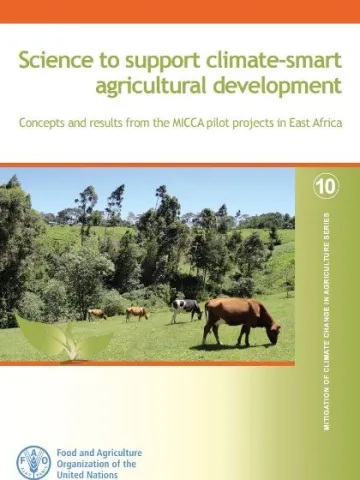Science to support climate-smart agricultural development

Abstract
This document reports on the concepts driving the scientific activities of FAO’s Mitigation of Climate Change in Agriculture Programme’s (MICCA) pilot projects in East Africa. It provides results from the research, briefly describes the analytical approaches used and concludes with key messages relevant to discussions on climate-smart agriculture (CSA). The MICCA pilot projects aim to help mainstream CSA in the region by identifying, verifying and scaling up farm management practices that can both increase productivity and set smallholder farmers on a pathway toward emitting fewer greenhouse gases (GHGs) per unit of produce, where possible. As there are many unknowns about what farming approaches are best for reaching CSA’s multiple objectives, the underlying premise of the MICCA pilot projects is that strong linkages between science and development are essential to the expansion of CSA in developing countries. The scientific approach that was followed permits a few general messages and suggestions for future efforts on ‘research to inform policy’ that are aimed at quantifying the parameters of potential CSA practices and their implications at nested scales.
